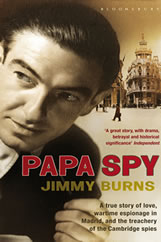In the Paraguayan Capital of Asuncion , hardly an icon of historic accountability, a group of South American football executives will meet tomorrow (Tuesday) to decide when and how, if at all, the second leg of the continent’s club championship Copa Libertadores final between River Plate and Boca Juniors of Argentina will be played.
This is no routine meeting. It comes after the match initially scheduled for last Saturday was cancelled twice over the weekend as a result of a violent attack in Buenos Aires on the Boca team bus which left several players needing medical attention and unfit to play.
The exact circumstances surrounding the attack have yet to be established. But it appears to have involved a gang of Barras Bravas, politically manipulated football hooligans linked t0 organized crime, from drug trafficking to extortion.
The enduring and widespread existence of Barras Bravas across club and national football with the alleged complicity of politicians, certain business executives and sectors of the police, have been at the heart of violence and corruption in Argentine football over decades , casting an enduring shadow over a national pastime that has produced champion national teams and two genius players, Diego Maradona and Leo Messi.
The failure of successive Argentine governments and of the powerful Argentine Football Association ( whose previous president the late Julio Grondona was identified by US investigators as one of the main culprits of Fifagate ), to tackle the problem is a reflection of Argentina as a failed state and the absence of a civic society with a sense of the common good.
As noted in today’s Spanish El Pais newspaper by the Argentine writer and journalist Ernesto Tenembaum , Saturday’s street battle between fans and riot police, and the attack on the team bus, was not the result of an accident, or police error, or the violence of just half a dozen deranged thugs but a symptom of a far greater malaise –endemic corruption and a crisis of authority in a supposedly democratic country.
Thus as Argentines spin webs of conspiracy, opponents of the center right Argentine president Mauricio Macri, have inevitably pointed to his previous incarnation as President of Boca Juniors, and the fact that his successor in the club Daniel Angelici made his fortune in the gaming industry and has alleged personal ties to sectors of the judiciary and the police.
Those leading the charge against Macri over the weekend include one-time Boca player Maradona, hardly the personification of moral and judicial rectitude during and after his controversial career as a player, and now coaching a club in Mexico with a history of alleged links with local organized crime.
But there are others who point to the alliances struck with the Barras Bravas and other vested interest groups in football by Macri’s most vocal opponent , the previous populist president, the Peronist Cristina Kirchner (currently facing an investigation for financial impropriety and abuse of power) , suggesting a problem that cuts across political allegiances . Indeed it has been so from the 1970’s when Grondona and other football executives grew in influence during a brutal military regime before spreading their wings under successive democratically elected governments.
If nothing else the latest violence and the dark shadow it has once again cast over Argentine football is a reminder how safe and saved Messi must feel having chosen to exile himself from his home country from the age of 13, and how different his career might have turned out had he ended up playing in one of the big Argentine clubs and his corrupt ridden birth city of Rosario rather than FC Barcelona.
But it falls on those living in Argentina and who love football as a game to be enjoyed not as a den of iniquity to sort out the mess. Beyond any exemplary sanctions, the latest incident cries out for a major independent enquiry that exposes once and for all the shadowy networks and their funding, and concerted follow up action ensuring that Argentine football ceases to be a free-for-all for crime and hooliganism.


Great take on Argentinian football and Argentina itself. I have never understood how such an amazing country, with fabulous resources and wonderful people keep stumbling on from one crisis to the next. Just to add a small note to your blog… I had the fortune to go to the Copa Libertadores game at the Bernabeau last Sunday. What an amazing atmosphere. Being a River supporter (I saw them play in BA some years back), I was surrounded with Boca fans who were fantastic. More than one openly cried as Boca took the lead – what passion! I shared my pipas and drinks with them and commiserated them at the end, hugs all round. An unforggetable game.